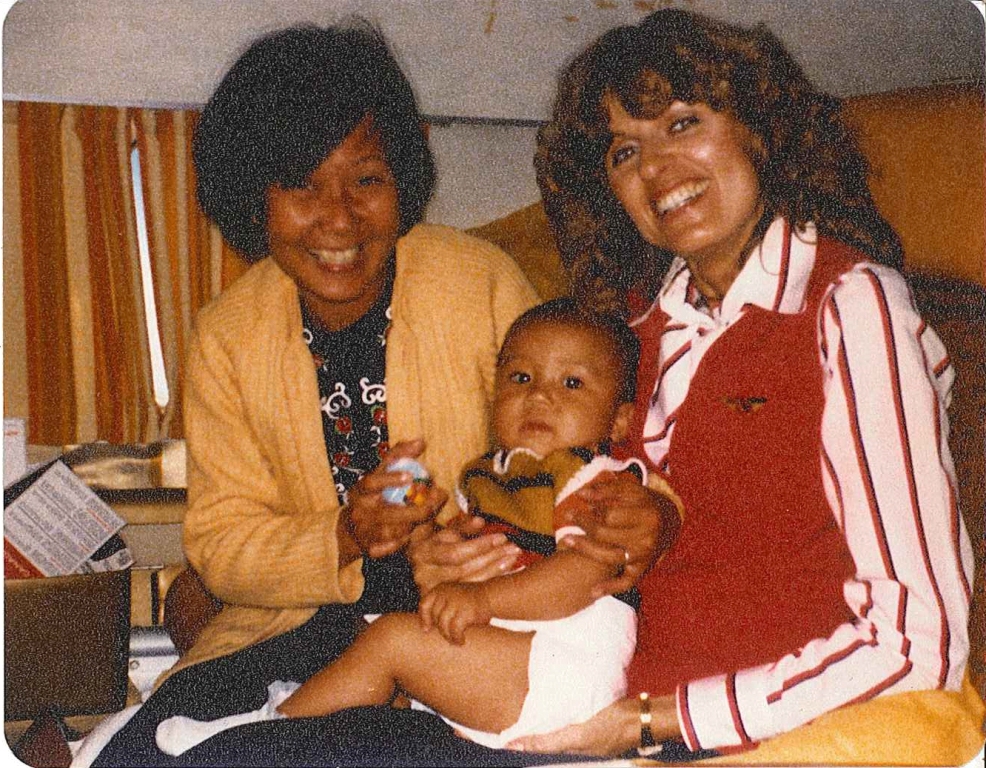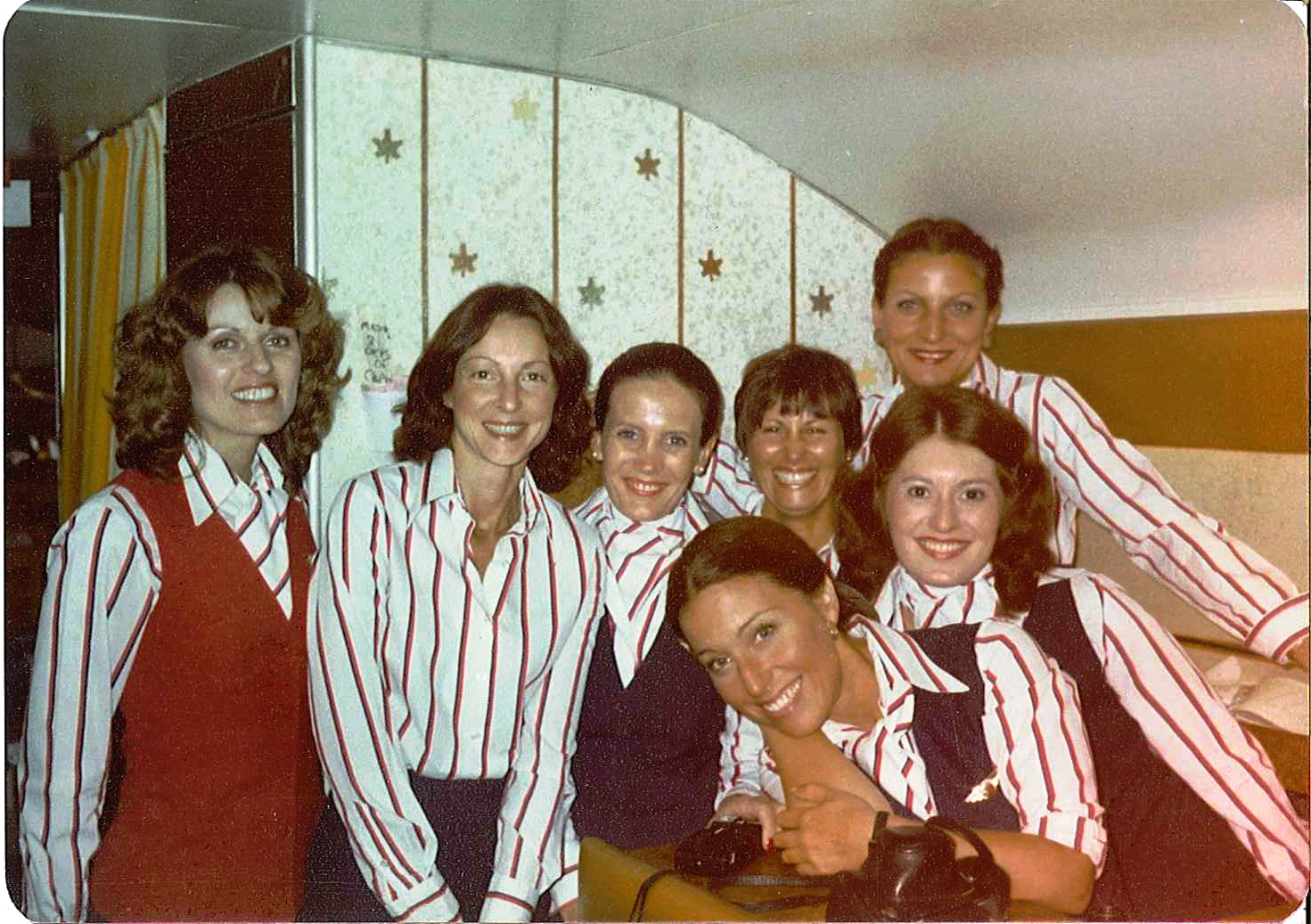Air Canada Vancouver-based crews were assigned to airlift Vietnamese refugees from various points in South-East Asia to major Canadian cities in 1979-1980. This refugee resettlement program would become one of Canada’s largest and most ambitious, bringing over 50,000 Vietnamese ‘boat people’ to our shores and throughout the country.
Thirty-six years is a long way to go back in one’s memory. Especially my memory! How I came to lead an Air Canada crew on the first flight that became known as the “Boat People” charters out of Kuala Lumpur in 1979 – I'm not quite sure. It was an honor and a very exciting opportunity to be able to travel to a far-off exotic land to bring these people from simple and often tragic circumstances to the opportunities and freedom of Canada. In getting an aircraft and crew in position for the first air-lift from Kuala Lumpur, we ferried a DC-8 aircraft from Vancouver to Anchorage, where we stopped for fuel. I had never been to Anchorage before, so it was quite exciting to be able to deplane and go into the airport for a quick look around. Back onboard, the crew settled in for our flight to Narita, Japan. After a short crew rest, we were once again airborne and off to our final destination, Kuala Lumpur.
A few hours into the last leg of our journey to the most important flight of my career, I was called into the flight deck. Can you imagine my surprise when Captain Patton told me that a Military airplane had flown into our flight path and we were being ordered by a General of the Philippine forces to descend and land in Manila? Apparently, our flight did not have proper clearance over their airspace. It was quite frightening; certainly nothing that I ever experienced in my career came close to the excitement and drama that this event created. Once on the ground, we were held in a small room in the airport while the Captain, and First and Second officer tried to straighten out the confusion. The Philippine officials were not easily swayed. Air Canada officials in Montreal had to be contacted, and we ended up being taken by bus to a Sheraton hotel in the city. I recall the colorful buses and the palm tree lined Boulevards en route to the hotel, trying to soak in as much of this new culture in spite of our circumstances. Pity I wasn't in a holiday mood. My thoughts were with the refugees who would be anxiously awaiting our plane so they could leave the refugee camps. We didn’t know when we would be cleared to continue. It was distressing to think of their disappointment with the delay.
Our quarantine at the hotel lasted for 24 hours. If memory serves me correctly, the captain managed to cobble together $300 in US cash and a couple of bottles of scotch, Johnny Walker if I recall correctly, that must have been in a bar on our aircraft. This, along with the correct air clearance, seemed to grease the wheels and get us on our way. When we finally arrived in Kuala Lumpur, it was late at night and there was nothing else to do but have some dinner and get to bed for an early crew call in the morning. Driving back out to the airport in the early morning, I was so impressed by the skyscrapers, the lights, the multi-lane freeways crowded with people on motorcycles of every size and description, and the pollution that hung in the air.
Finally back on board our aircraft, I stood at the top of the stairs and saw the buses bringing our special passengers to the field. It was astounding how calm they were, dressed in clean summer-weight clothing, wearing flip-flops and caring a simple plastic bag with their documentation - their only possessions. There was no baggage being loaded in the belly, there were no large carry-on bags to wrangle into the overhead bins. These were not our typical passengers – they formed an orderly procession of quiet, tired souls. With the help of our Air Canada liaison, Al Knapp, we got them settled on board, using our combined language skills of French, facial expressions, and sign language.
Thankfully, many of the passengers spoke very good French and we could converse easily. It was astounding how many tiny babies were on board. There were a several young children. Many had left other family members behind in Vietnam, due to lack of money for their passage. What struck me most was how little of their possessions they had escaped with, and how indomitable their spirits were.
We served a simple meal of rice, bean sprouts, vegetables, and some sort of meat - and lots and lots of green tea. An aircraft never smelled so fragrant. During the long flight back to Tokyo, I remember talking to many passengers about their stories. They shared freely and openly and also wanted to know about us. Many of the crew shared our contact information with them so that we could stay in touch. At one point a mother was trying to calm her screaming baby by walking up and down the aisle with him, rubbing his bare back quite hard with one of our metal teaspoons. I thought that must be quite uncomfortable for the little guy, so I convinced the woman to let me try to calm the child. I took him up to the front of the aircraft and before long, mother and baby were relaxed and happy again.
They were kind to each other; they wanted to help us work – children would help us hand out service items, and pick up even the tiniest speck of garbage in the cabin. I knew they would be grateful for all that was being, and would be done, for them. It was a privilege to have had this opportunity to welcome them to Canada.
Written by Air Canada In-Charge Flight Attendant Helen Reagh from Vancouver, Canada.

